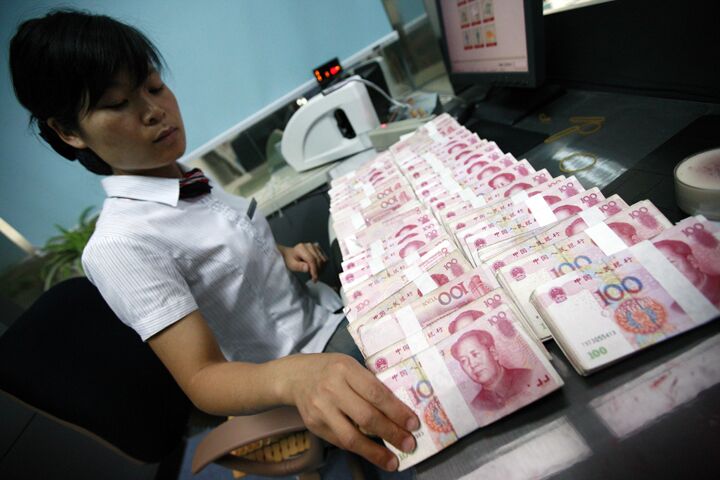
China Positions Yuan as Rival to the Dollar
On June 29, Chinese policymakers announced that they would take steps to multiply the ways the yuan can be used in international finance. The landmark announcement comes alongside a flurry of Chinese activity in recent years designed to posture China’s currency as an alternative to the declining U.S. dollar.
Although details on the exact measures were scant, Beijing said it will spend $45 billion to develop a cooperation zone near China’s border with bustling Hong Kong. The zone is expected to foster wide-scale yuan lending between Chinese and Hong Kong firms and is intended to be the first of many yuan-denominated trade hubs.
“The country’s policy is to gradually open up its capital account and realize the full convertibility of the yuan,” said Zhang Xiaoqiang, vice chairman of China’s powerful National Development and Reform Commission.
From 2008 to 2011, the amount of China’s international trade settled in yuan (rmb) grew from zero up to 8 percent. Jun Ma, Deutsche Bank’s chief economist for Greater China, said Beijing’s moves are largely a response to rising skepticism about the dollar’s role as a global reserve currency: “It is apparent that more and more central banks are realizing that alongside the secular decline of the usd (U.S. dollar) as a reserve currency, the rmb is the most likely currency to challenge the near-monopoly position of the usd in the global reserve system.”
Yet, the yuan would have formidable obstacles to surmount before it could become a true rival to the dollar. Most challenging of these obstacles is that the yuan’s value remains controlled by the Chinese government. China’s policymakers view the country’s capital controls as the primary force that insulated China from the decimation of 2008’s global financial meltdown, so they are reluctant to dissolve those controls. This reluctance means Beijing’s efforts to liberalize capital flows are progressing, but at a glacial pace. The measures announced in late June reveal Beijing’s desire to hasten this progress, but the yuan is still light-years away from actually being able to challenge the dollar’s number one status.
But the yuan is not the global market’s only hope for a dollar replacement.
As China’s economic power grows, and as global dissatisfaction with the U.S. economy/debt/dollar increases, the influence of the yuan will multiply. But it will be the European currency—not the yuan—that will depose the U.S. dollar.
At present, European leaders are disunited in the handling of their financial crises. In the absence of strong central leadership, they bicker and debate. They dither and prevaricate. The result is an unstable euro that the world isn’t yet prepared to invest its financial faith in. But the dithering and hesitation is injecting European leaders with a desire for an unflinching leader willing to take the drastic action necessary to rectify the Continent’s fiscal ailments. The rising desire will prompt these policymakers to cede national sovereignty over to a central EU leader who will take blitzkrieg action in every facet of European affairs. When this leader takes the reins, the European currency will rapidly replace the dollar—and obliterate it.
To understand more, read “The End of the Dollar System.”
